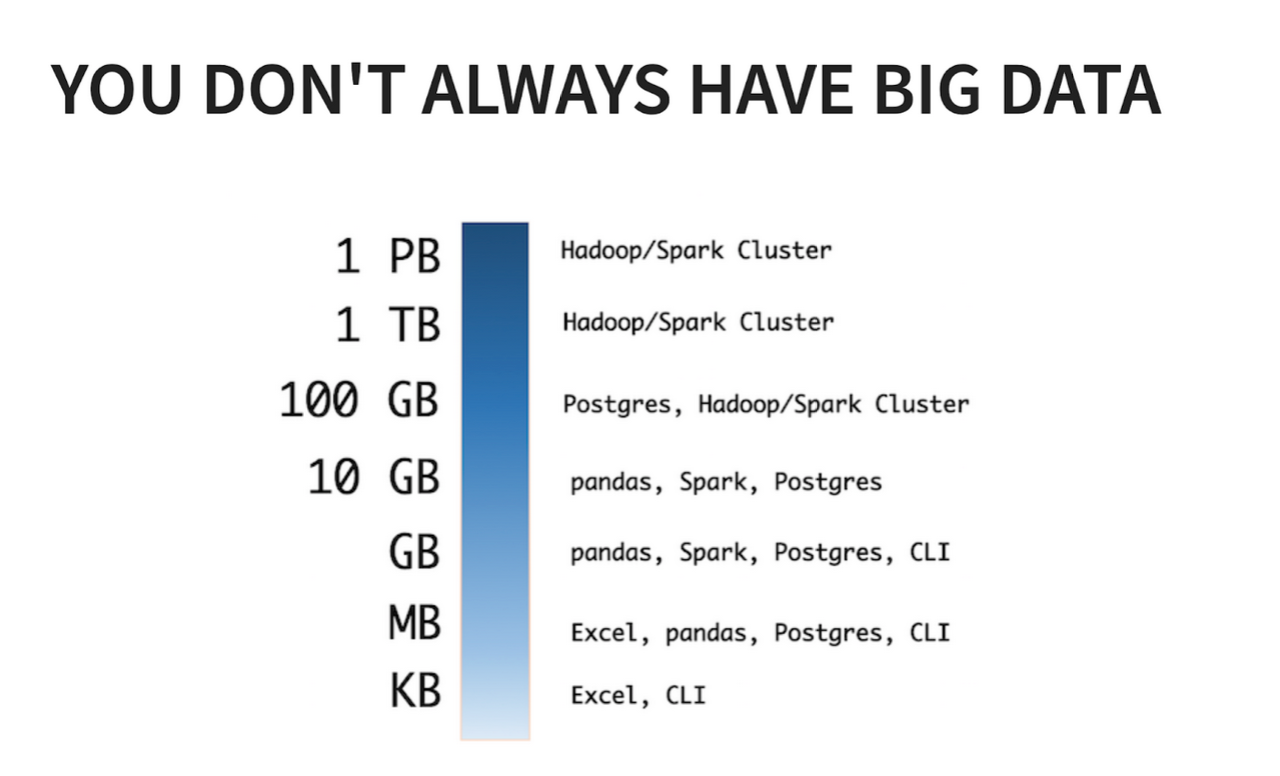Welcome to my blog post on Geospatial Professional Job Interview questions. As a geospatial professional, I know that the job market is proliferating, and competition for positions can be fierce. This post will provide a comprehensive list of questions I have been asked in job interviews for geospatial roles. I divide the questions into several categories: background/culture fit questions, emotional intelligence questions, time management, and technical questions.
This post aims to help you prepare for your job interview and increase your chances of landing your dream job as a geospatial professional.
General Tips
Research the company: Before the interview, learn as much as possible about the company, its products, services, mission, and culture. This will help you tailor your responses to the company's specific needs and show that you are genuinely interested in working there. Know the president's CEO's name. Figure out if they have a standardized hiring process (all the large ones do). For example, when I interviewed at Amazon, all the questions were based on Amazon's leadership principles. For even more tips, check out my post on Job Searching and Interviewing.
In person, dress up a little more than you usually would.
At home, do the following:
- Make sure you have a wired connection
- Look into improving lighting. One of the easiest ways is to have your webcam in front of a window. Invest in an HD camera.
Background/Culture Fit Questions
Tell me about yourself.
Everything you mention must connect you to the position you're applying for. This is NOT the place to tell them your origin story. Instead, answer this question:
"How does your experience, skills, and knowledge make you a good fit for this position?"
Why are you leaving your current job?
You'll want to balance not bad-mouthing your current employer while also mentioning why you want to leave.
What is your management style? What management style do you prefer
There arethree major management styles. Autocratic, Democratic, and Laissez-faire. Make sure you know what they are, which ones you like to be under, and which ones you use when you're a leader.
Where do you see yourself in 5 years?
It's nice to connect this question to "What does success/promotion look like at this company." This way, you and the employer can get on the same page with goals.
Do you have any questions for me?
See my post on 12 questions you should ask in a job interview.
Why should we hire you? What are your qualifications?
Try to connect as much experience and qualifications as you have with what is in the job description.
Emotional Intelligence Questions
What is your greatest weakness/strength?
During a job interview, being honest about your weaknesses is essential. In my case, when applying for development team roles, I share that in my past experience in pre-sales, I sometimes struggled to balance being transparent about product issues and the need for sales. While this may have been a challenge in my previous role, this experience has become an asset for me in my current role as a developer, as it helps me to ensure that everyone on the team is aware of any product issues.
How do you handle conflicts with coworkers or supervisors?
One of the most helpful things I have learned is usingFacts, Story Ask. The gist is that you first share the facts you have about a situation, then tell a story that incorporates those facts, and finishes by asking the person what their version of the story is. I've used this method countless times, and it's my go-to when conflicts occur.
Can you give an example of when you had to adapt your communication style to better connect with someone?
One of the most valuable assessments I've ever taken is the DiSC Assesment. It's not a personality test but a tool that tells you about someone's communication style.
People with D personalities tend to be confident and emphasize accomplishing bottom-line results.
People with I personalities tend to be more open, emphasizing relationships and influencing or persuading others.
People with S personalities tend to be dependable and emphasize cooperation and sincerity.
People with C personalities emphasize quality, accuracy, expertise, and competency.
I do my best to figure out who is what type and adjust my communication style to match!
Time/work management
How do you handle multiple tasks and deadlines?
Be prepared to be given a scenario where you are given hypothetical tasks and have to figure out what order to complete them.
How do you prioritize your workload and get organized?
You should definitely be tracking your tasks with a dedicated tool. Check out my post on how I use Todoist to accomplish all my goals.
How do you handle ambiguity or uncertainty?
A highly iterative and agile workflow is beneficial when product requirements are uncertain or ambiguous. Even though it might take longer, it allows for faster feedback and helps to identify any issues early. However, when objectives and implementation are clear, I adjust my approach, making it less iterative and prototype-heavy.
Technical Questions
General Tips
- Understand time and space complexity and know when your solutions do not scale well. A classic book on this topic is Cracking the Coding Interview. You only need to read the first few chapters to pick this up.
- When solving an algorithm problem, I start with a brute-force approach and try to get a working solution. Then I use the remaining time to refactor and improve it. I find that once I get it working, my stress levels go down, and I'm more clear-headed to discover more optimal solutions.
- Ask if you can make assumptions! When I was interviewing at Amazon, I was tasked with a problem where I had to clean a large dataset of PPI (Personally Identifiable information). I knew a regex would be a good option, but God knows I can never remember how to write them. I asked my interviewer if I could assume I was given a working regex, and they said, "Sure!" I got a job offer, so I know it didn't negatively affect me. The worst thing they can say is no.
- Practice writing on a whiteboard. Writing code on a whiteboard is A LOT different than typing or writing on paper. If you're interviewing in person, find a whiteboard and practice some problems. Likewise, if you are doing a remote interview, practice using collaborative writing tools such as vscode live share and Replit, an in-browser IDE.
- Practice thinking out loud. It's beneficial for interviewers to see how you approach problem-solving. Even if you're struggling with the solution, you could be super close, and they would give you points if they knew your thought process was on the right track.
Questions
Describe your most challenging project. Tell me the hardest thing you've ever done.
You should have this project in mind and be ready to discuss it.
What is your experience with Cloud?
This is a vague question, but I've gotten it several times. Good to know the significant offering from both providers:
Amazon
Amazon Elastic Compute Cloud (EC2) for hosting virtual machines
Amazon Simple Storage Service (S3) for object storage
Amazon Elastic Block Store (EBS) for block storage
Amazon Relational Database Service (RDS) for managed relational databases
Amazon Elastic Container Service (ECS) or Elastic Kubernetes Service (EKS) for container orchestration
AWS Lambda for serverless computing
AWS CloudFormation for infrastructure as code
AWS Systems Manager for managing and automating instances and virtual machines
AWS CloudWatch for monitoring and logging.
Azure
Azure Virtual Machines for hosting virtual machines
Azure Storage for object and block storage
Azure SQL Database for managed relational databases
Azure Container Instances or Azure Kubernetes Service for container orchestration
Azure Functions for serverless computing
Azure Resource Manager (ARM) templates for infrastructure as code
Azure Monitor for monitoring and logging
Azure DevOps for continuous integration and continuous deployment (CI/CD) pipeline.
How strong would you say you are in Python?
This is such a lame question, but I've gotten it so many times. I pivot the question into some projects I have worked on with Python (Applications, APIs, Notebooks).
Explain the four pillars of OOP.
I've been asked this at least twice. Here you go.
Expect A question about fibbonoci's number. I swear, interviewers love this one.
Can you explain your experience working with GIS software such as ArcGIS or QGIS?
The Geospatial ecosystem has open-source and proprietary technologies that do much of the same. Open-source GIS software examples include QGIS, GeoServer, GRASS GIS, and OpenLayers.
On the other hand, examples of proprietary GIS software include ArcGIS, Hexagon, Autodesk, and Google Maps API.
I think it's essential to learn both to give you as many options as possible. If you are only interested in working with specific technologies, check out my blog post about using LinkedIn's boolean search operators to perform targeted searches.
Can you explain your experience working with geospatial databases such as PostGIS or MongoDB?
PostGIS is one of the most popular relational databases in GIS, an extension of Postgres. I've also seen MongoDB being used as a NoSQL database, as it also supports geospatial queries. I recommend learning both!
Can you discuss your experience with geospatial data processing and analysis tools such as FME or GDAL?
I haven't worked with FME, but many people like it. Both FME and software built with GDAL do a great job of manipulating geospatial data.
Here are some of my notes on popular tools for geospatial data processing.
GDAL - Reading and Writing data
OGR- Reading/writing Vector data
GEOS – vector analysis. Spatial operations... intersect, buffers, etc
PROJ4 – Coordinate systems
Python Fiona - Reading/writing geospatial data (uses ogr in the background)
Shapely - Geospatial analysis (Uses GEOS in the background)
Rasterio - Raster data - Uses GDAL in the background. Reads to NumPy arrays
GeoPands - Extends pandas to use geospatial data. Uses Fiona for reading and writing. Puts geometry objects as shapely objects in Pandas data frames.
PySAL - Spatial statistics.
PyKrige - Python Kriging!..Interprolate raster from vector data.
This list could be missing important ones, so please let me know if I should add anything! For example, I have no experience with the R programming language, but I know they have powerful spatial libraries.
What is your experience with DevOps? What CI/CD tools have you used?
I've noticed that many geospatial developer/engineer positions are looking for people with DevOps experience. Think Docker, Kubernetes, CircleCI, Puppet, Chef, etc. My post on setting up GitHub Actions is a great place to get started.
Can you discuss your experience with geospatial data standards and protocols?
In my last interview, I got asked a bunch of these questions. I think staying up-to-date on OGC standards and catalog specifications like STAC is essential.
Can you discuss your experience with satellite imagery and remote sensing?
I think it's important to generally understand the EO (Earth Observation) space and be able to work with and understand how to read metadata for satellite imagery.
How do you handle large and complex datasets?
It's easy to not need to use advanced techniques for working with geospatial data, but once the data gets large enough (>10GB), you will often be moving into the work of Hadoop/Spark and other big data tools. Check out this infographic from Viki Boykis.

If you don't have experience with data this big, I suggest you get acquainted, as data is only getting bigger as time goes on!
Conclusion
Geospatial professionals are in high demand as the job market grows rapidly. This blog post provided a comprehensive list of questions that you may encounter in a geospatial professional job interview, divided into several categories: background/culture fit questions, emotional intelligence questions, time management, and technical questions. By preparing for these questions and researching the company beforehand, you will be better equipped to show that you are a good fit for the role and increase your chances of landing your dream job. Remember, it's also important to dress appropriately and have a good set-up for virtual interviews. Overall, being confident, honest, and able to connect your experiences and qualifications to the job will put you in a solid position to impress the interviewer and land the job.
Comments
- No comments yet.

John Solly
Hi, I'm John, a Software Engineer with a decade of experience building, deploying, and maintaining cloud-native geospatial solutions. I currently serve as a senior software engineer at HazardHub (A Guidewire Offering), where I work on a variety of infrastructure and application development projects.
Throughout my career, I've built applications on platforms like Esri and Mapbox while also leveraging open-source GIS technologies such as OpenLayers, GeoServer, and GDAL. This blog is where I share useful articles with the GeoDev community. Check out my portfolio to see my latest work!







0